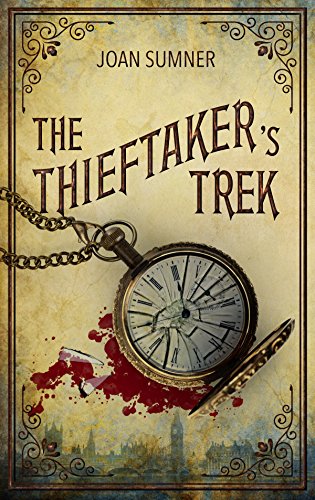Why a Booktrail?
1810: The industrial revolution brings with it illegal activity and even murder…

1810: The industrial revolution brings with it illegal activity and even murder…
Murder. Abduction. An attic full of frightened children.
The industrial revolution roars across England like a steam locomotive. Cotton mills and factories rake in profits thanks to cheap labor. Not from illicit African slave trade-but by enslaving little children.
When young Harry is lured from home with a penny, he can hardly believe his luck. Now he can help his widowed mother put food on the table. But Harry doesn’t return home. Just another victim from the slums. Until Peter Frobisher takes on the case.
Frobisher has his own dark past. He’s a ‘thief taker,’ a bounty hunter of sorts. He tracks down criminals for a living, so finding a child should be easy. But the more Frobisher unravels, the more sinister the reality becomes. The trail leads Frobisher away from the city, onto the English canal network, and beyond to Derbyshire.
This is a city whose cobbled streets are covered not just in horse excrement but violence and the stench of poverty too. Violence is dealt with by the law makers and Frobisher is one of them. The court is often thronged with spectators and the latest criminal to receive the death penalty:
The public gallery at the Old Bailey, London’s main criminal court house, broke into cheers and thumping of feet as the highway man made a courtly bow before being led to the alley linking the courtroom to Negate Gaol.As he passed Peter Frobisher, the thieftaker, he prisoner made a succinct and flagrant gesture towards his captor.”
The rich and poor parts of London come under the spotlight:
“The drive tool them from the tree-lined squares of Mayfair to the cobbled warrens and working lanes of Spitalfields, the runnels choked with household waste and rubbish from the market stalls. Acrid odours of the tanners and charcoal burners penetrated the comfortable carriage.”
The original 19th-century mill became notorious during the Industrial Revolution for its unsavoury employment practices.
It was set up in 1782 by farmers with small estates in the area and was powered by the water of the River Wye. The company was said to be doomed from the start as one of the founders had sunk most of his assets into the venture. There was added pressure on the project to work but its location made this tricky since the valley was particularly isolated and transport for the raw material and finished goods was poor. If that wasn’t enough,it was rad to find a workforce.
By 1786 the, barely profitable, mill was put up for sale. The Poor Law Act of 1601 further put the nail in its coffin as it included “the putting out of children to be apprentices”
Susan: @thebooktrailer
I do love a book of historical fiction and when I was reading this I realised it’s the first set during the industrial revolution. Certainly one of the most evocative. The main character was exciting too – a thief taker or bounty hunter – again not read about these in an UK set novel at least! So I was intrigued from the get go.
I wasn’t disappointed. There’s a lot to like about this book. A great sense of time and place, evocative writing and a sense that the author must have a time machine or something. You can even smell London and the stench of the Industrial revolution whilst reading. The characters are nicely drawn and the plot pulls you along through the soot and dirt on the cobbles as you scrabble for clues like the peasants do for food.
It was particularly nice to see this story move from London out into the countryside as that brought a new dynamic to the story and the characters themselves. Frobisher is not going to let anything get in his way in his search for the truth is he? Not even the winding canals of Derbyshire and the potential slavery of children is going to stop him doing the right thing. London at the time of the Industrial revolution is a great period to experience in this way. There’s the hope the city and the country is changing but the realisation that the dark side to history and the gap between rich and poor can still cause the largest and darkest shadows of all
Destination : London, Derbyshire Author/Guide: Joan S. Sumner Departure Time: 1810
Back to Results